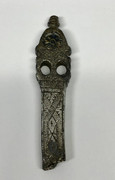
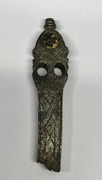
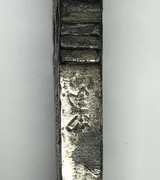
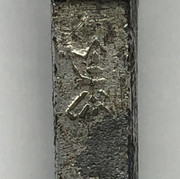
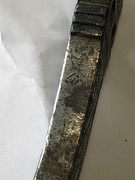
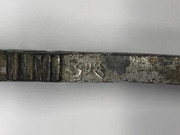






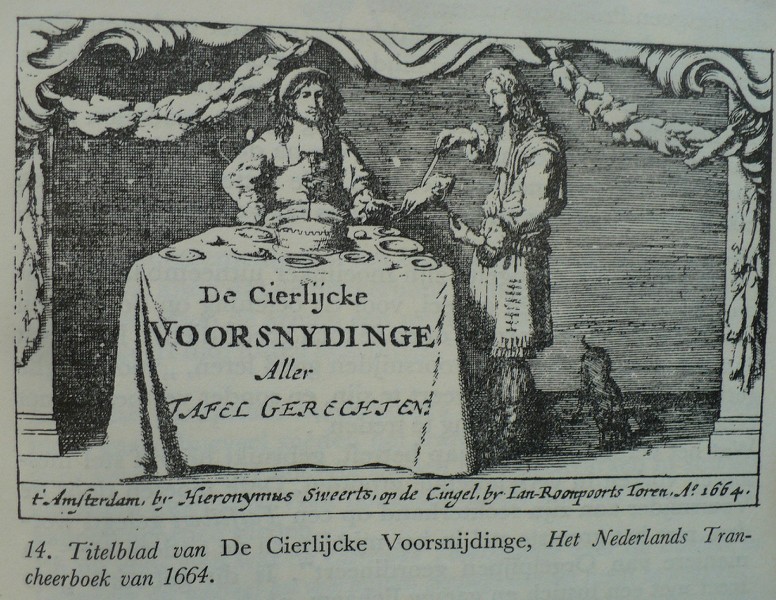
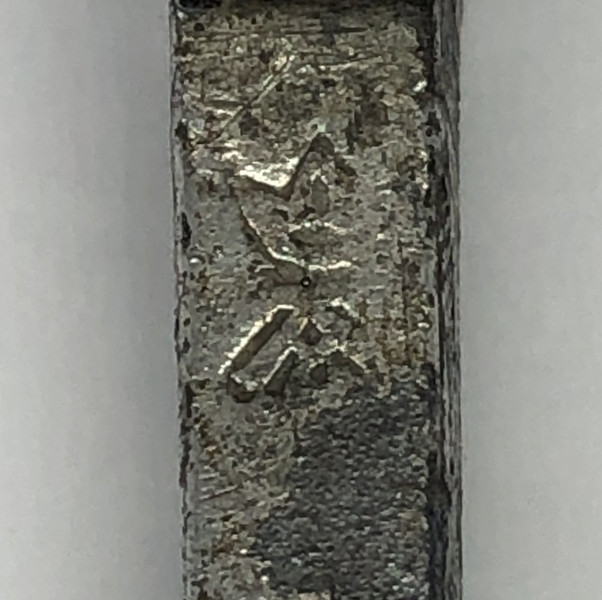
oel wrote: The maker could be of the Southern Netherlands, today's Belgium or Dutch or German and indeed perhaps French. I have asked Theo to have a look at it. I will check if Dutch or Belgian?
Peter.
Dendriet wrote:.
My assumption is, somewhere one of the Scandinavian countries (Norway Sweden)
My preference is for Sweden
legrandmogol wrote:The seller responded and told me they found it inside the old city limits of Utrecht
Et Voila…..oel wrote:The silver and broken knife handle was found by a metal detector sweeping the grounds of the old Utrecht city limits. Utrecht has a rich history.
https://en.wikipedia.org/wiki/Utrecht
Most of my contacts agree most likely not a Dutch maker's mark. Could it be a crowned A and perhaps a year letter or French charge/discharge mark. Being part of a broken handle, more marks could have been on the missing piece of the handle.
Indeed this type of knife handles were made in France, Southern and Northern Netherlands, Germany and Scandinavia. Time period1570 to about 1650.
I will move this topic to other countries.
Peter.
Gratitude:
Theoderich
Horst H. Arians
Mr. J. Schipper
oel wrote:Do not think so. Mark Rosenberg made a mistake that is why we did not mention it in the first place.
For Finland see:
https://en.m.wikipedia.org/wiki/Finland ... edish_rule
http://www.silvercollection.it/DICTIONA ... NLAND.html
At the beach will get to it later.
Peter.
Ref;
https://www.silverstamplar.com/town-marks.html
https://en.m.wikipedia.org/wiki/Treaty_of_%C3%85bo

You are not going to tell me that the Tardy is flawless (it is full of mistakes)oel wrote:The date quoted by Mark Rosenberg 1822? is a mistake.
Unfortunately my Tardy on silver does not mention a crowned A for Turku/Abo.
Rosenberg's book is from 1927/1928oel wrote: The question remains crowned A with (very) spread legs or? .
We now know the story of Turku / ABo by nowSasropakis wrote:The crowned A (if it's really that) does remind the town mark of Turku (in Swedish Åbo). It comes from the medieval coat of arms of Turku where the letter A comes from Aboa, the Latin name of the town. However it's definitely not 1822 because then the item should have several other hallmarks like the assay marks and year letter and the crowned A doesn't look like the one used in the early 19th century. And the item looks older so if it would be from Turku I would say it's from 17th century in which case it would be a rare item. But my guess is that it's not made in Turku and the similar crowned A hallmark could be just a coincidence.
Your input came while I was writing. Mind my asking, but "maker's mark"? This is not it, it is a town mark. Anyway, I have quite a good register of known Turku/Åbo masters. None of them are even close to this crowned "whatever it is" mark. Moreover, I don't think it is a fake but as for now unidentified....yet!Dendriet wrote:oel wrote: You have old original makers marks from Turku / Abo, and would you like to share it with us so that we can compare it
Qrt.S wrote:@DendrietYour input came while I was writing. Mind my asking, but "maker's mark"? This is not it, it is a town mark. Anyway, I have quite a good register of known Turku/Åbo masters. None of them are even close to this crowned "whatever it is" mark. Moreover, I don't think it is a fake but as for now unidentified....yet!Dendriet wrote:oel wrote: You have old original makers marks from Turku / Abo, and would you like to share it with us so that we can compare it